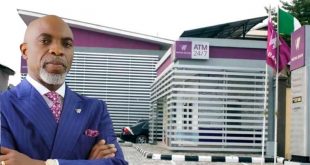The 8th National Assembly since its inauguration on June 9, 2015 has only received 12 Bills from the Executive arm of government.
Findings carried out by Thisday at the National Assembly reveal that the Bills apart from the statutory budget-related ones were sent to both Senate and House of Representatives at the rate of four Bills per year.
On its part, the legislature during the period under review had passed 213 Bills and also cleared 138 petitions from members of the public.
Available records show that of all the 12 Bills presented by the Executive in three years, only two have inkling to the anti-corruption mantra that brought the Buhari- led administration into office on May 29, 2015.
The two anti- corruption Bills are the Mutual Assistance in Criminal Matters Bill, 2016 which had since been passed by the National Assembly and Money Laundering (Prevention and Prohibition) Act 2011 (Repeal and Re-enactment) Bill, 2016 which was reportedly withdrawn by the Executive due to purported disagreement between the Office of the Attorney-General of the Federation and Minister of Justice, Abubakar Malami, and the Acting Chairman of the Economic and Financial Crimes Commission (EFCC), Ibrahim Magu.
The remaining 10 Bills sponsored by the Executive in both chambers of the Federal Legislature in the last 37 months include: Communications Service Tax Bill 2015; Money Laundering (Prevention and Prohibition) Act 2011 (Repeal and Reenactment) Bill, 2016; Mutual Assistance in Criminal Matters Bill, 2016; Chartered Institute of Directors of Nigeria (Est. etc,) Bill, 2017; National Lottery Act (Amendment) Bill, 2017 and the National Water Resources Bill, 2017.Others are the National Centre for Disease Control and Prevention (Est. etc,) Bill, 2017; Chartered Institute of Forensic and Investigative Auditors in Nigeria (Est. etc,) Bill, 2017; Federal Institute of Industrial Research Bill, 2017; Raw Materials Research and Development Council (Repeal and Reenactment) Bill, 2018; Nigeria Natural Medicine Development Agency (Est. etc,) Bill, 2018 and the Minerals and Mining Bills,2018.
The Senate has, however, passed four other bills sponsored as individual Bills by Senators in support of the anti-corruption agenda of the present administration.
The Bills are Witness Protection Bill, the Whistleblower Protection Bill, Federal Audit Service Commission Bill and the Nigerian Financial Intelligence Unit Bill (NFIU).On the other executive bills forwarded to the National Assembly, the report of the Chartered Institute of Directors of Nigeria (Est. etc,) Bill, 2017 has since been laid and awaiting final consideration and passage by the Senate, while the rest are at different stages of legislative scrutiny by the relevant committees.
On its part, the National Water Resources Bill, 2017 had to be stood down after its consideration at the second reading stage in June was mired in controversy following the antagonism by many Senators against it. The debate on the bill at the Senate plenary showed obvious division along geo-political lines among the Senators.
The paltry number of bills sent to the National Assembly , according to analysts, belied the stance of an administration that promised change and the need to overhaul the system.
It was believed that the Buhari Government, at its inception, will work vigorously to introduce new and radical policies which need to be backed up with innovative, comprehensive and appropriate legislations that will come in form of executive bills.
 DailyrecordNg …Nigeria's hottest news blog
DailyrecordNg …Nigeria's hottest news blog








